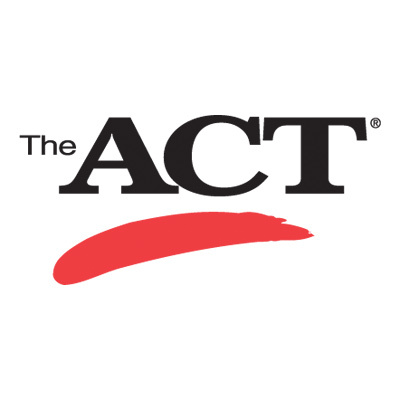
Big changes are coming to the ACT. Starting September 2020, the ACT will offer three new testing options to students—individual section retesting, online testing, and superscoring.
Students who have already taken the ACT will have the option to retake individual sections of the test, rather than retaking the whole exam. They’ll also have the option to superscore their individual test sections. These changes are huge and have the potential to shakeup the test-prep industry.
With online testing, students will be able to receive their results faster than ever—within just two days. This is compared to the excruciating two to four week wait for the results of the paper exam. Big news for students who think paper exams are dated.
For those unfamiliar with the world of test prep, The ACT and SAT are the two standardized tests colleges use to judge students’ college readiness. Both are created by testing companies competing for your dollar. (Your $46-$65 dollars, I should say.) Recently, the SAT has become the more widely used test, but ACT officials claim that staying competitive isn’t their priority.
“These new options are breakthroughs based on research and the latest technological capabilities, as the testing industry moves into the 21st century,” says Suzana Delanghe, ACT chief commercial officer. “They will directly benefit students, providing more choices, an improved testing experience, and a better opportunity to showcase their readiness and reach their maximum potential.”
What this means for the test-prep industry
The College Board, the makers of the SAT, will have to respond. In fact, it’s in their best interest to update their test. Ignoring the changes to the ACT could hurt their bottom line. Think about it—who’s going to take the SAT when you could just take each section of the ACT individually? Why make things harder on yourself?
Earlier this year, the College Board rolled out a “disadvantage” score, which gives context about students’ socioeconomic background. Some expect the company to respond to the ACT with further updates.
So are we moving toward a test-optional admissions process? Well, some schools are already there. Others may be moving toward that point in the near future. It’s a tricky dilemma. If standardized testing is taken away, what new metric will replace it? Will GPA be weighted higher in admissions? Or does a more objective metric exist? This debate is beyond the scope of this post, but I encourage you to check out the facts and decide for yourself.
What this means for students
Experts have mixed opinions on these changes. Some claim that individual section retesting will allow wealthy students to take the test more often, only worsening the issue of students buying their way to a high score.
“These changes only give more privilege to privileged students,'” says the cofounder of a test-prep company based in Southern California. “Now they’ll be able to take the test more times because they have the money to do so.”
Similarly, others argue that the single-section retake will only help the privileged. They say students who can afford coaches are the ones who will benefit the most, as they have a plan crafted for them.
Some educators see these changes positively, though. Individual section retesting and superscoring could benefit students with attention and anxiety disorders the most. Taking one 35-minute section is much more manageable than a 4-hour test. Even for students without these disorders, taking one section at a time could dramatically reduce stress.
“The stress and burnout of taking a 4-hour test can hurt students’ scores, so taking one section at a time could eliminate a lot of anxiety,” says the director of an East Bay tutoring center.
Students from low-income families could benefit from one-section retesting as well. Test fees add up, especially if you take the ACT more than once, and especially, like most students, if you send your scores to six or more colleges. With superscoring and individual section retaking, students should end up spending less money per test. ACT has confirmed that individual section retesting will be cheaper, and instead of sending out multiple tests to colleges, you could opt to send out your superscored test, further lowering costs.
What this means for the future
This is uncharted territory. There are still a few unknowns with all of these changes. No one knows how colleges or the College Board will respond. For example, will higher ACT scores become more common? If so, does that mean those scores become less meaningful? What about score equivalency between ACT and SAT? If scoring higher on the ACT is easier, then will higher SAT scores be more sought after?
No one knows what’s going to happen, but starting in September, students will have more testing options than ever.
